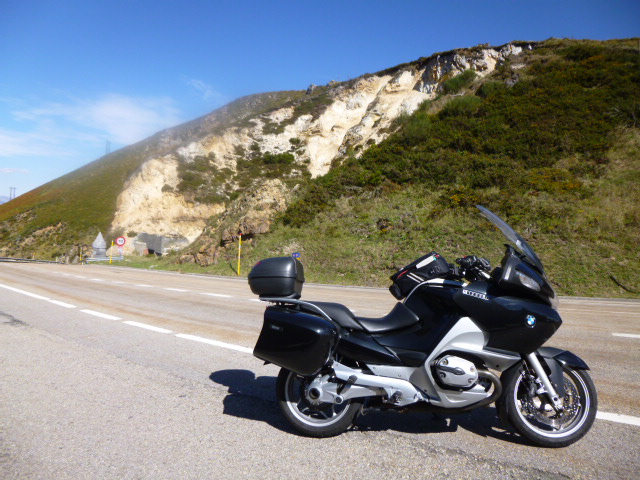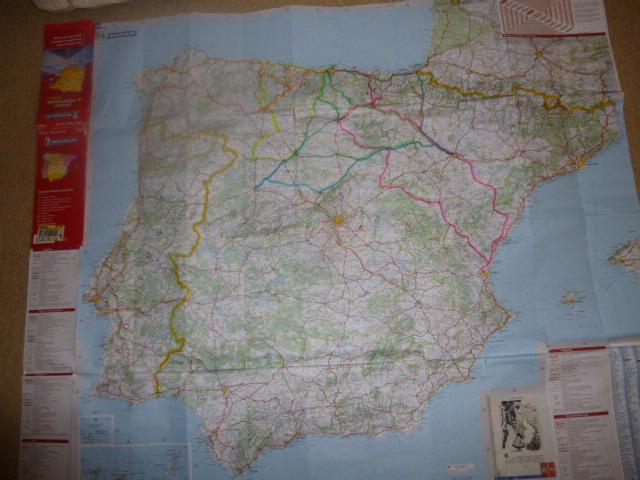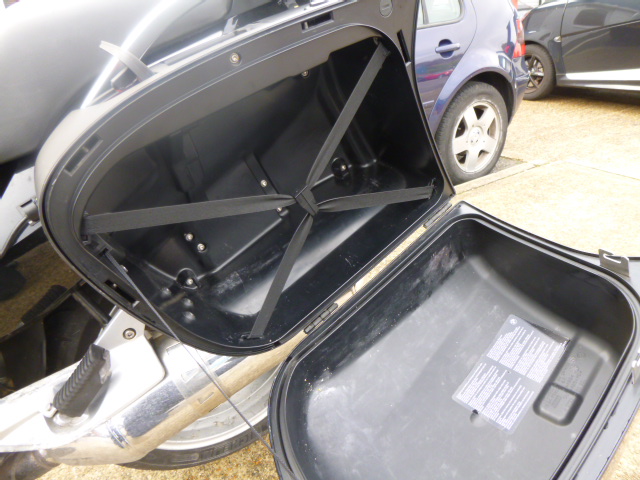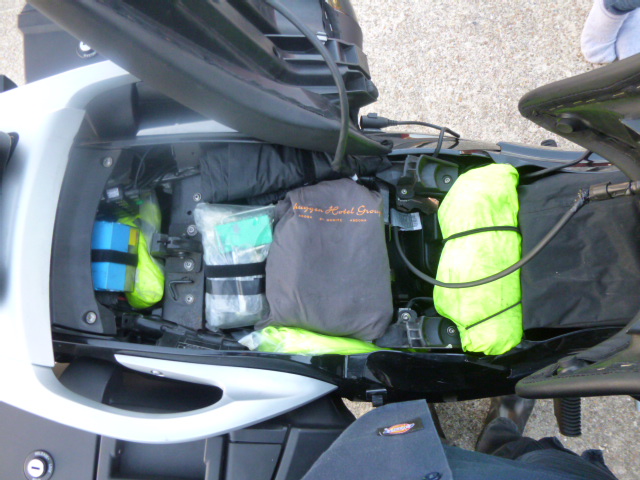How to prepare for a motorcycle tour
Wemoto Touring Checklist
There are many benefits to touring by motorcycle:
Firstly, aside from petrol/ferry costs, motorcycling can be a relatively inexpensive way of travelling which includes very little, or no sitting in traffic. Secondly, you won't need to research your various methods of transportation between one place and another - it's already sorted and in the garage. Thirdly, there's a heightened level of freedom from going away for a while with only a very small amount of luggage (yes, motorcycle touring will be restrictive in this way), and a huge amount of time saved packing unnecessary items. Fourthly, but most certainly not lastly, there's just so much more you can take in while on a motorcycle - the experience of a place is often elevated by the thrill itself of being upon a bike.
It is better to travel well than to arrive – that's what they say isn't it? Well, there's definitely a lot of people out there who think so, and if you're thinking about going on a motorcycle tour, you're not alone.
Of course – and this is most important for those of you who are new to this – there will be some preparations and considerations to make before you set off on the long and winding road. Just how thorough you wish to be with your planning is up to you. We all like to do things our own way – some at Wemoto prefer not to plan their trips at all!
Wemoto Touring Checklist - by Andy
Andy has worked at Wemoto for a few years now and loves touring. When it comes to preparation, Andy is the organised type. While his guide is not extensive, it has been built up over many years of continental touring. So, if you're a more organised rider, or if you're new to touring and want to try to get everything covered, hopefully his guide might help you:
1. Choose your route
When considering your next holiday, it's usually the destination that's thought about first, followed by your transportation methods. But not on a motorcycle tour. A biking holiday is an opportunity to get on some of the best roads out there, and see some wonderful sights – so I like to do my research first.
Wemoto Tip: Just to make sure things run as smoothly, I like to set the chosen route for my entire journey on a GPS (use a map, if you're the map type) before I go.
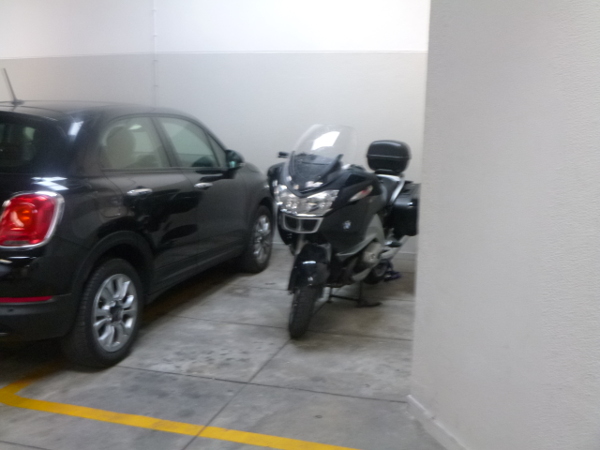
Safe and sound under ground
2. Choose your bed
Some might like to turn up and find a bed for the night each day. I like to not waste time looking, and pre-book. Once you've chosen the route you'd like to take, do a bit of research on where you're going to be staying, whether that mean camping or staying in a hotel.
While it is nice to be out in the open air, there are some benefits to sleeping in a hotel. Apart from the obvious luxury factor, lots of hotels offer underground parking and thus a safe place for your motorcycle to sleep while you do. This is particularly good if you're worried about the
bike theft rate in a certain area.
3. Pack smart
Touring motorcycles are offering more and more storage these days. That said, there'll never be as much space as there would be in a car, so you'll still need to pack smart. Take only what you must, leaving out any non-essential items. Resign yourself to the fact that you'll probably overpack on your first tour.
While, on the face of things, this might seem quite restrictive, it can actually be very liberating. So let go of all that extra baggage and reap the benefits of the non-materialist life for a while – plus, you can always wear any extra clothes you have, though this might make you a bit hot after a while...
Also, don't forget your
hi-visibility vest (which is compulsory to carry in some countries), as well as some wet weather gear. A spare pair of
gloves is also advisable, for if your other pair gets wet or goes missing - better to be safe than sorry.
If you're going to be taking a lot of luggage, or you're going to be buying things en-route,
bungee straps will come in handy, as a way of securing extra bits onto your bike.
Wemoto Tip: If you're having trouble fitting your clothes into your storage case, try rolling them. This not only allows for them to take up less space, but they'll also be less creased when you take them out. Bonus!
Another thing: I know it's tempting, but try not to buy any new motorcycle clothing just before your trip; or, if you do, make sure to try your gear out for a while before leaving day. This is to avoid having to ride wearing a jacket, for example, that seemed to fit perfectly well in the shop but which, after 200 miles, turned out to be not so well-fitting after all. Difficulties in riding gear do show up on a longer trip!
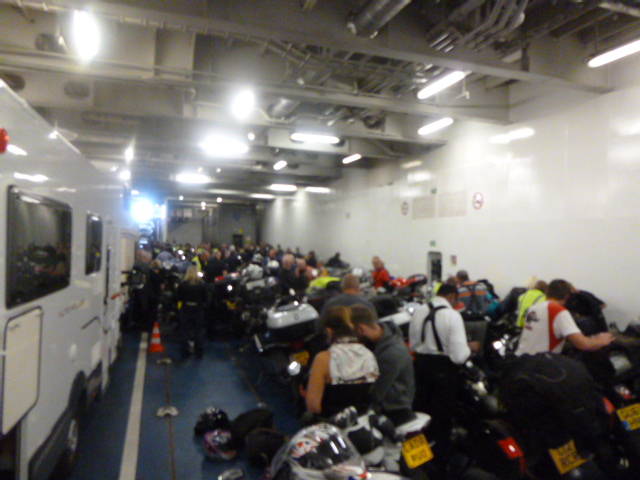
Don't wait until the ferry to find your bike has problems
4. Service your bike
You might now be ready, but is your bike? It's probably got a long way to go and you need to make sure that it's up to the task. Make sure to service your bike well in advance, you wouldn't want to find out once you're on the road that it has problems. If you forget to tighten something, for example, you want to know about it before racing for the ferry. If something is wrong, you've now got time to deal with it; a preferable outcome than having to, say, delay or miss your trip.
Make sure you've got enough tread on your tyres; 1mm is the legal minimum in the UK.
Wemoto Tip: If you're a first-time tourer, you might not be aware of how many miles you've got in your tank, so make sure to test the range on your bike, using your trip metre. You'll then have a better idea of just how often you'll need to be stopping for fuel. Also, stations can be quite far apart in Europe, with lots of them only taking card payments. Make sure you're prepared for this, as you don't want to run out of fuel in between stations, or get to a station with a fist-full of cash, only to be turned away.
What I keep under my saddle
Although you're servicing your bike before the trip, there are a number of things that are wise to take with you, in case you do encounter any problems. Although I've probably missed a lot of stuff out here (please feel free to tell me if I have), this is the list of the things I carry under my saddle, that you might like to take:
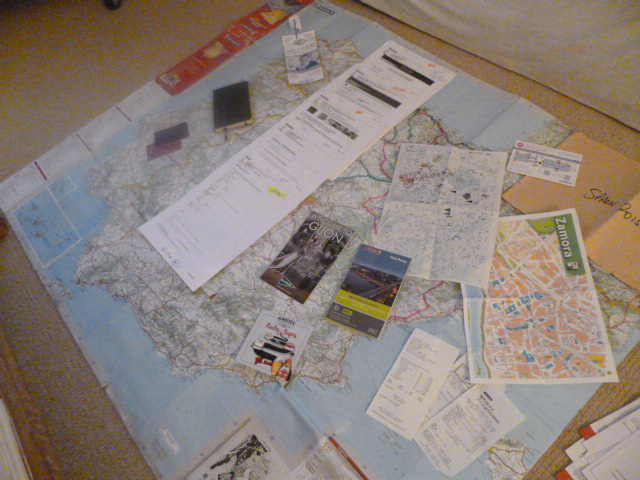
Important Documents
Alongside your handy parts, there are also some useful, or in most cases, essential, documents to take with you:
- Obviously, unless your tour is going to be in the same country as you already reside in, then you'll need your passport
- Diving Licence
- Travel Insurance
- Registration documents and MOT
- Motorcycle Insurance document. Also, check that you're insured to ride on the roads in the countries you're planning on riding in
Wemoto Tip: In most cases, the original documents will be required. I recommend taking copies of every document as well, kept in a separate place from the originals, just in case you lose them.
We hope our guide has been useful. Anything you think Andy's missed out – just drop us a line at
[email protected], and we'll possibly add it in.


